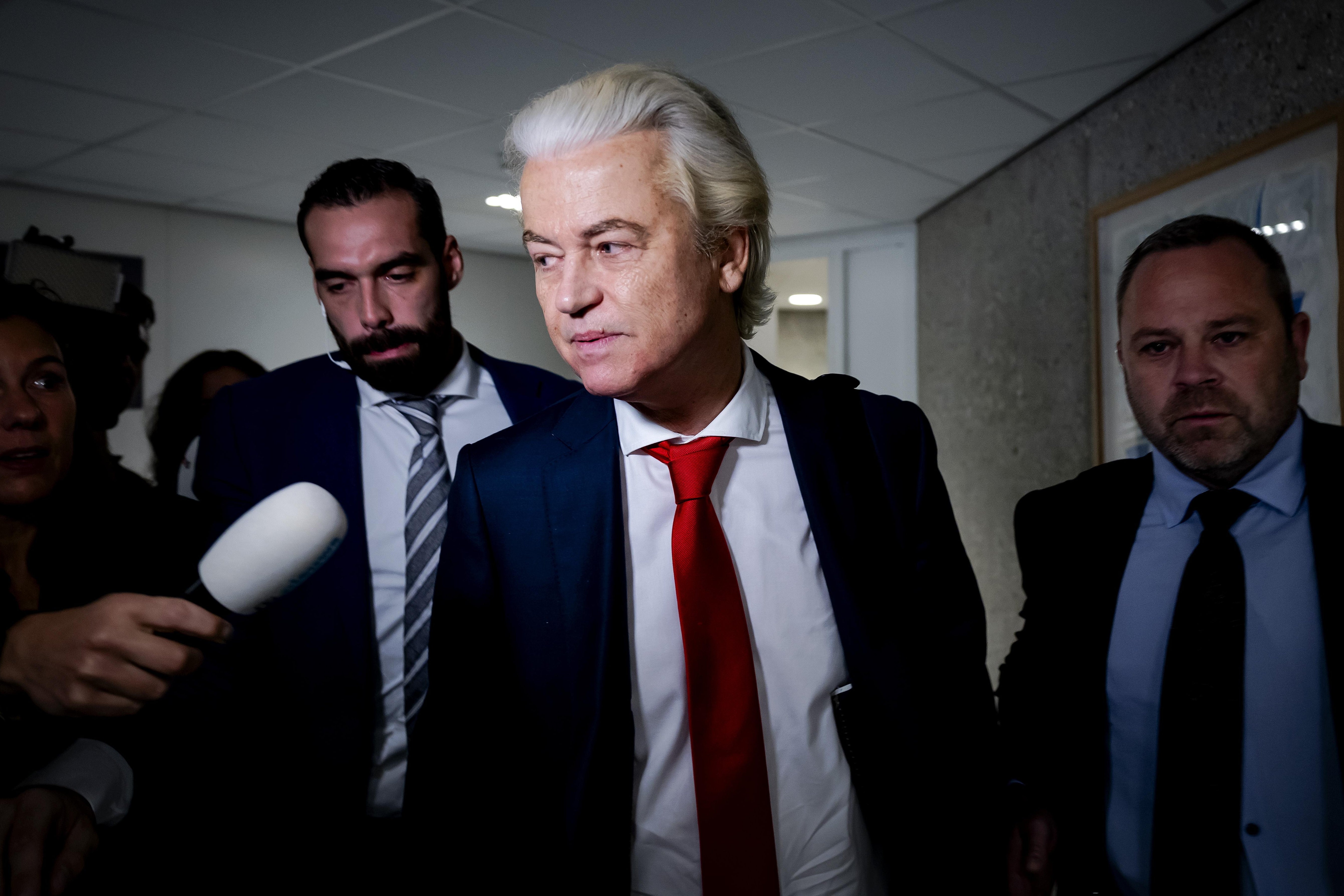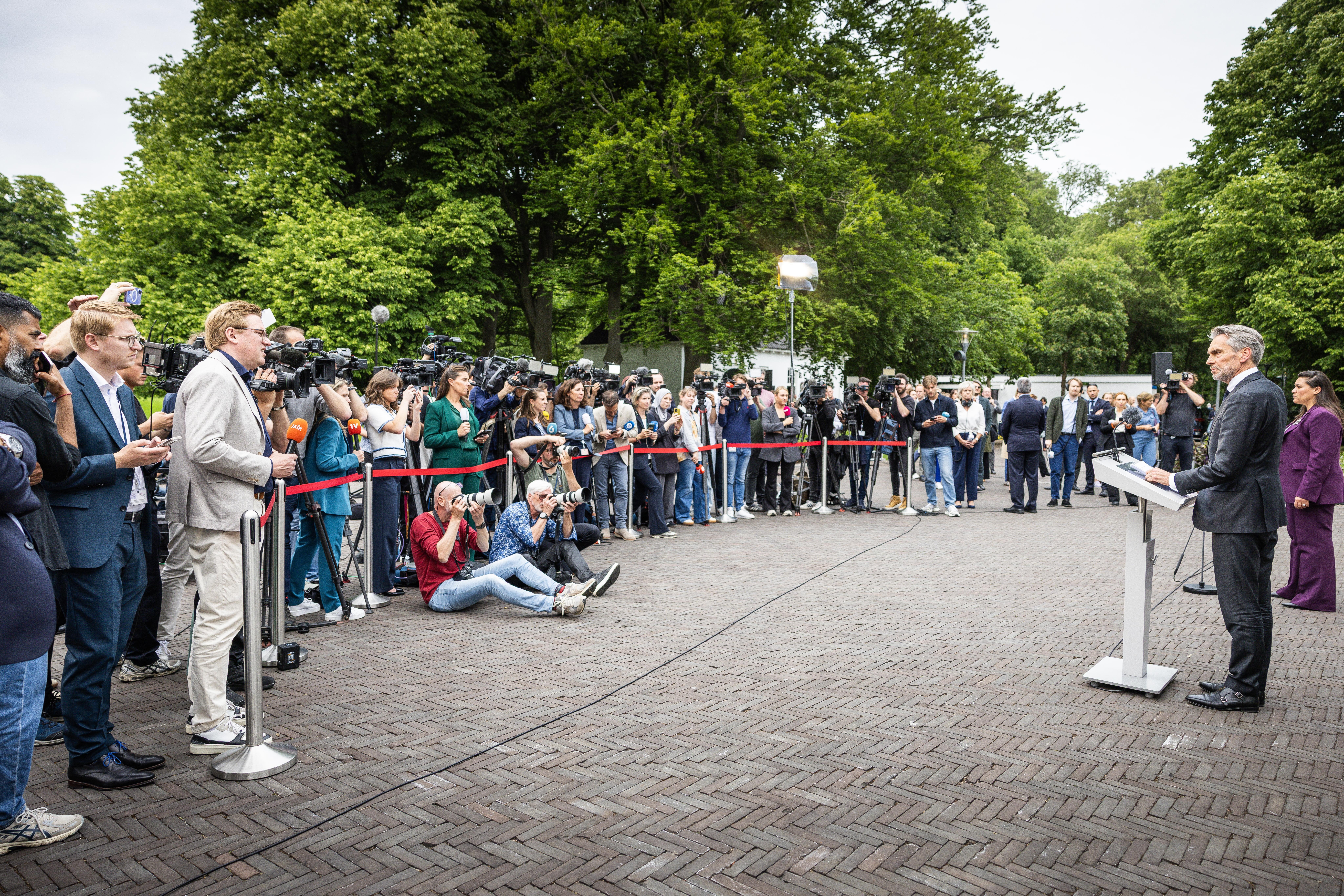The Dutch government has collapsed, with Prime Minister Dick Schoof announcing his resignation after Geert Wilders withdrew his PVV party from the right-wing coalition.
The move is expected to trigger snap elections in the Netherlands.
Ministers from Mr Wilders' PVV party will leave the cabinet, with the remaining ministers forming a caretaker government in the interim.
Elections are unlikely to be held before October, and the formation of a new government could take months.
The collapse comes amid a rise in hard-right sentiment in Europe, fuelled by anger over migration and the cost of living. This could threaten European unity in dealing with Russia and the United States.
Mr Wilders said earlier on Tuesday that his party was pulling out because the other three coalition partners were not willing to support his ideas on asylum and immigration.

"No signature under our asylum plans. The PVV leaves the coalition," Mr Wilders said in a post on X.
The others parties in the coalition now have the option to try and proceed as a minority government, though they are not expected to.
The likely outcome will be new elections in the coming months, adding to the political uncertainty in the Eurozone's fifth-largest economy.
It will likely also delay a decision on a possibly historic increase in defence spending to meet new NATO targets.
And it will leave the Netherlands with only a caretaker government when it receives NATO country leaders for a summit to decide on these targets in The Hague later this month.

Disbelief and anger at Mr Wilders’ actions
Earlier, Mr Wilders' coalition partners responded with disbelief and anger after he announced his withdrawal.
"This is making us look like a fool," the leader of the conservative VVD party, Dilan Yesilgoz, said.
"There is a war on our continent. Instead of meeting the challenge, Wilders is showing he is not willing to take responsibility."
"This is incredible," leader of the centrist NSC party Nicolien van Vroonhoven said.
"It is irresponsible to take down the government at this point."

Last week, Mr Wilders demanded immediate support for his proposals to completely halt asylum migration, send Syrian refugees back to their home country and to close asylum shelters.
Coalition partners did not embrace his idea, and had said it was up to the migration minister from Mr Wilders' own party to work on specific proposals.
Mr Wilders was not part of the government himself as its leader or a minister.
He was convicted for discrimination after he insulted Moroccans at a campaign rally in 2014 and only managed to strike a coalition deal with three other conservative parties last year after he gave up his bid to become prime minister.
Instead, the cabinet was led by the independent and unelected Mr Schoof, a career bureaucrat who had led the Dutch intelligence agency AIVD and was the senior official at the ministry of justice.
Reeves and Starmer face cabinet revolt over spending review
Starmer’s defence spending plans under pressure as Nato pushes for more
Nato ‘will force Starmer to spend 3.5% of GDP on defence’ to keep Trump happy
Ukraine hits Putin’s bridge to Crimea with underwater bomb attack
Madeleine McCann latest: Abandoned farmhouse near suspect’s home searched
Ukraine war latest: Crimean bridge blown up in massive explosion







